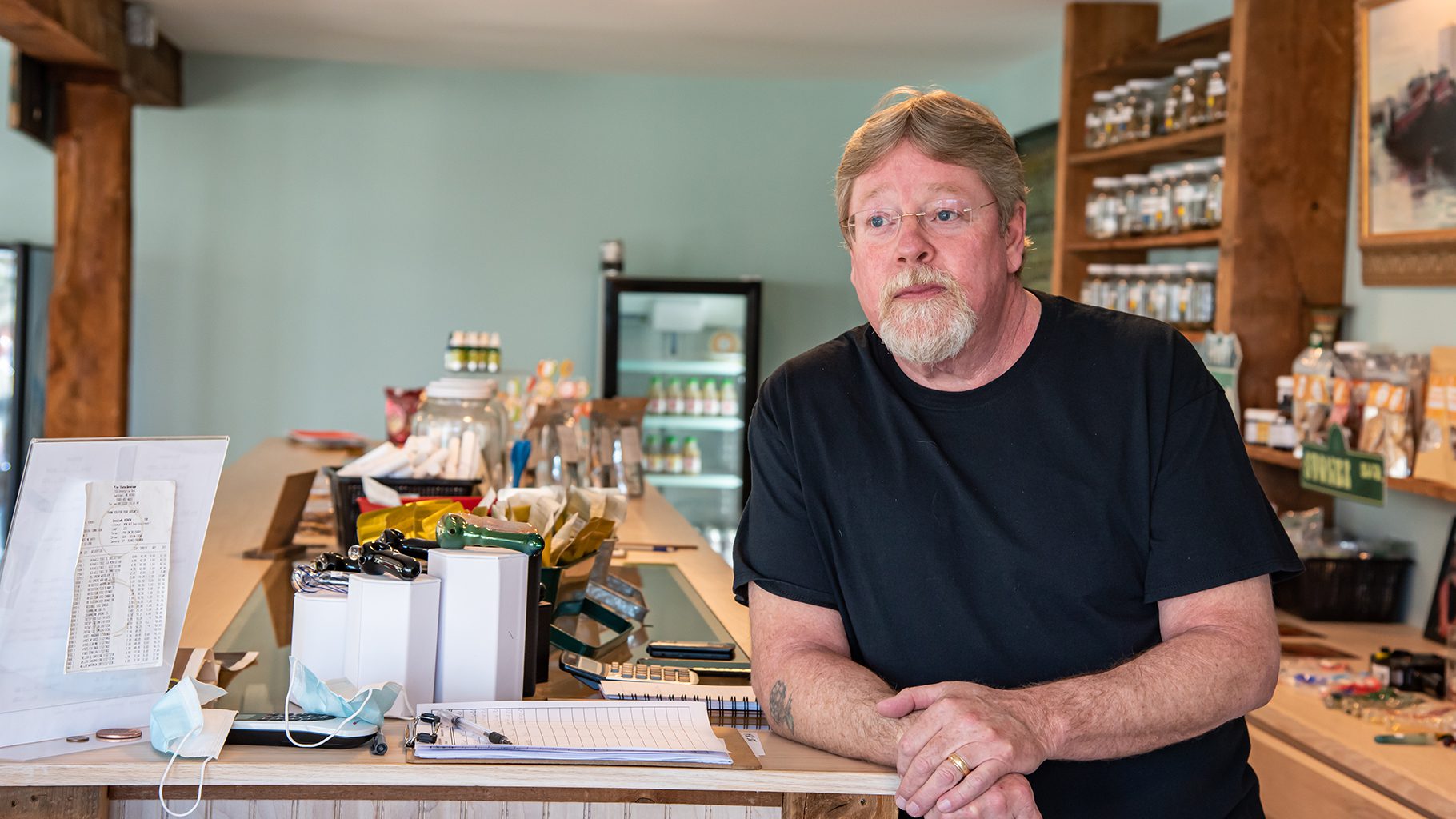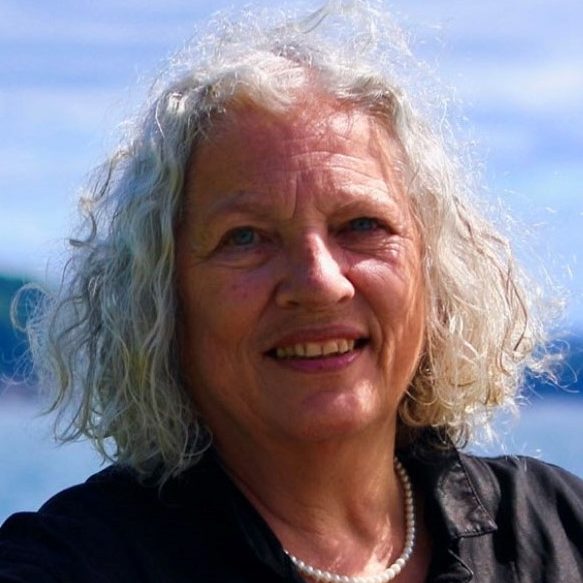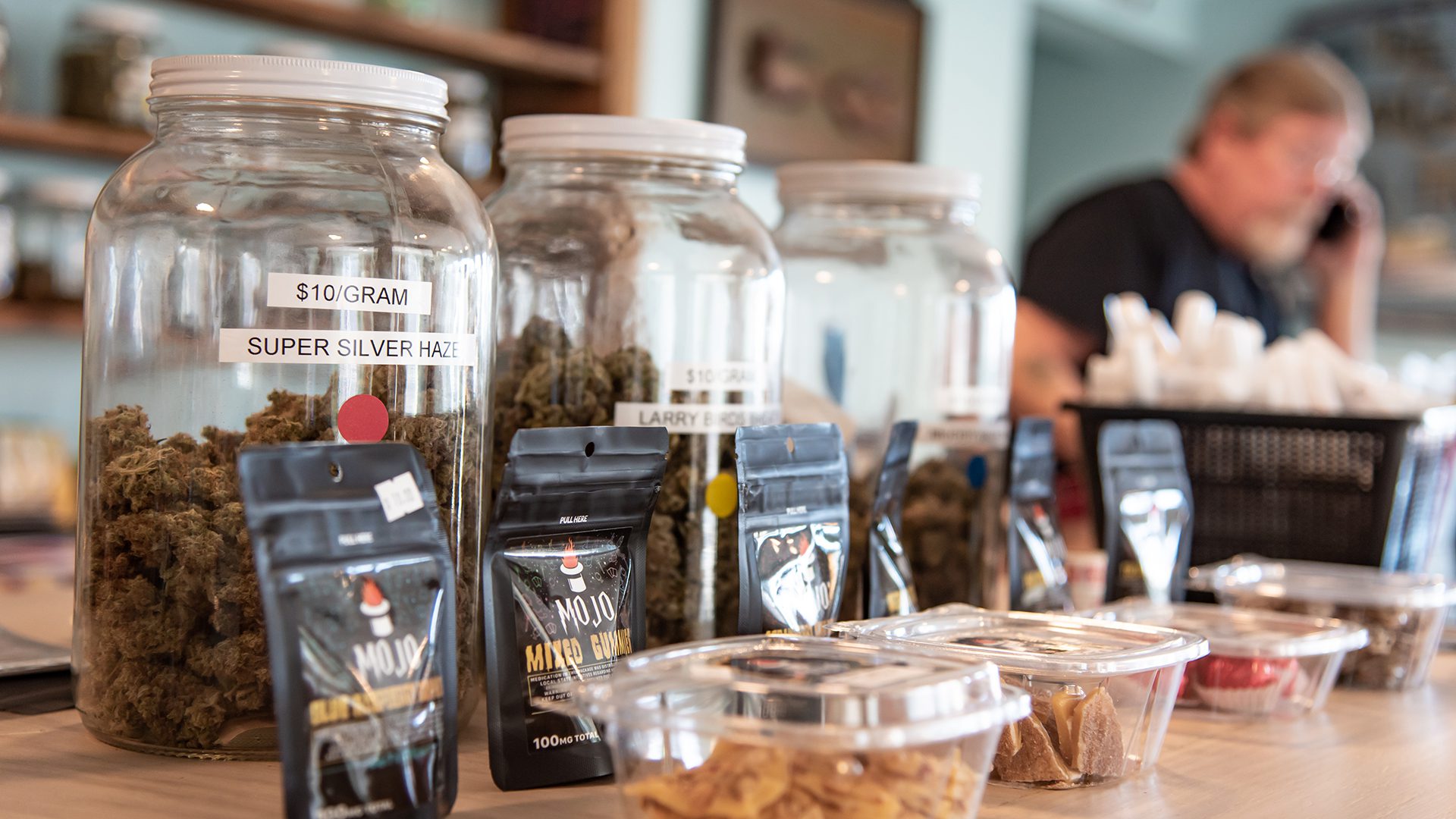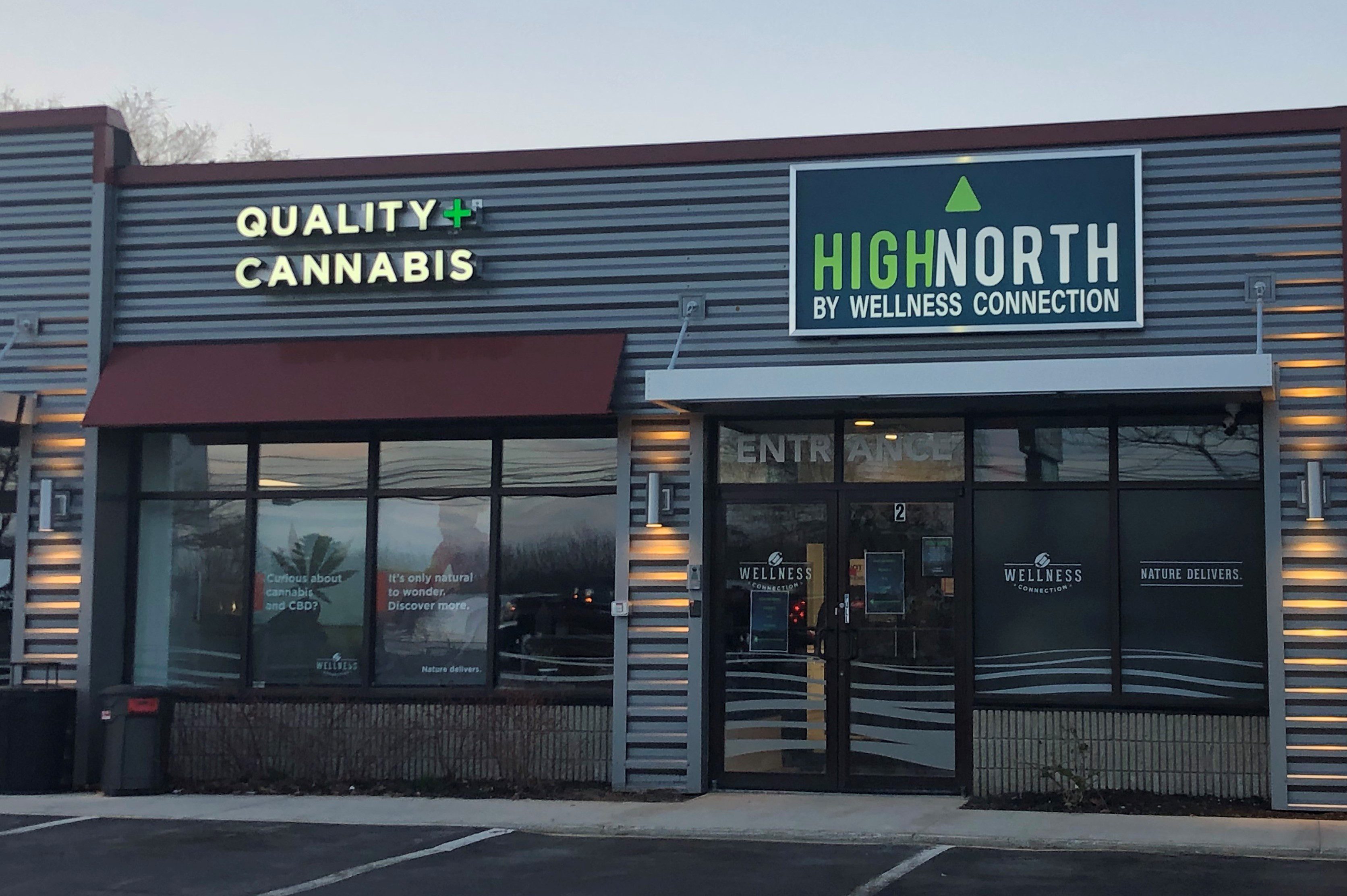The way King Bishop sees it, there would be no adult-use recreational marijuana shops in Maine if not for the foundation laid more than 10 years ago by medical cannabis caregivers.
And the way it’s going now, those same medical marijuana caregivers worry they will soon be pushed out of the market by big corporations.
“We wouldn’t have an adult-use program if it wasn’t for the work the medical (marijuana) community has done with legislators,” said Bishop, who got his caregiver license following the 2009 public vote to create Maine’s medical marijuana system.
Bishop, owner of Your Coastal Connection in Belfast, is one of 3,084 registered caregivers in the state who sell medical marijuana to those who have a recommendation from a doctor or nurse practitioner to use cannabis. On March 22, during a seven-hour public hearing, dozens of small medical marijuana caregivers spoke out against new proposed state rules to regulate their industry.

“Seventy-five percent of caregivers in Maine will be out of business in one year if these go through,” said Dawson Julia, director of the Maine Cannabis Coalition and owner of East Coast CBDs in Unity. “This is like a Wall Street vs. Main Street fight.”
Last year, medical marijuana became the state’s most valuable crop, with sales exceeding $285 million, according to the Department of Administrative and Financial Services. But just six months after adult-use recreational marijuana stores opened in Maine, the medical marijuana community is feeling anxious about its future in a newly competitive market. State regulators say updated rules for the medical marijuana system are long overdue and it makes sense to align the two systems when possible.
Many of those who testified against the rules — which would require investments in security systems, and increased product testing and tracking – say the state should start over and work with local caregivers to come up with a system more likely to keep small businesses afloat. Several Maine lawmakers agree, with a bipartisan group signing on to emergency legislation that was released just four days after the public hearing.

The bill, LD 1242, would require any new rule changes to be reviewed by lawmakers, and orders the Office of Marijuana Policy to include caregivers, patients and physicians when writing the rules, according to the bill summary. Although the measure is primarily sponsored by Democrats — Rep. Lynne Williams of Bar Harbor and Senate President Troy Jackson of Allagash — House Republican Leader Kathleen Dillingham of Oxford and Assistant Senate Minority Leader Matt Pouliot of Augusta are listed as co-sponsors.
“The rules are really untenable for the small medical marijuana cultivator,” Williams told the Portland Press Herald in late March. “This is the most audacious set of rules that I’ve seen.”
A public hearing before the Legislature’s Veterans and Legal Affairs Committee is set for April 23.
In addition to the power struggle over the regulations, there’s another reason small Maine businesses are worried. Although the rules governing the new adult-use recreational market initially required companies to be Maine-owned, that changed last year after the state decided not to fight when a major player in the industry filed a federal lawsuit alleging that Maine could not constitutionally require businesses to be owned by residents.
“The way the law was written, this was going to be an industry for Maine people,” said former state Sen. Roger Katz (R-Augusta). “The businesses that were to be created had to be majority Maine-owned businesses.” And only Maine residents could participate, he added.
Katz, who led a 17-member panel to write the legislation, said that provision was vital to gaining passage in the House and Senate, although lobbyists representing out-of-state entities questioned its constitutionality, citing the Commerce Clause. The clause has been interpreted by the courts to prohibit states from favoring residents over nonresidents in business transactions, according to the Legal Information Institute at Cornell Law School.

“My impressions are that the goal of keeping this small and Maine-resident centered has long been lost,” Katz said. “To a certain extent, I think that’s a sad thing.”
If the medical marijuana market in Maine shrinks, it would be consistent with what’s happened in other states that approved recreational use, according to a data analysis by The Associated Press. A June 2019 story reported that in Oregon, nearly two-thirds of patients gave up their medical cards and the number of medical-only retail shops fell from 400 to two.
In Alaska, medical cardholders dropped by 63 percent after recreational sales began in 2016; in Nevada the decline was nearly 40 percent and in Colorado it was 19 percent, according to the AP.
Yet the Maine Office of Marijuana Policy, a state agency created in 2019 to oversee medical and recreational sales, insists there’s value in keeping both programs.
“The Office of Marijuana Policy has been consistent in advocating for the continued existence of both programs now and into the future,” David Heidrich, director of engagement and community outreach, said in a statement. “Each program has a unique client base with their own wants and needs.”
Thirty-six states have medical marijuana programs and the list of those with approved recreational sales continues to grow, according to the National Conference of State Legislatures. New York lawmakers recently agreed to begin adult-use recreational sales, making it the 15th state to do so, according to The New York Times.
‘Fall by the wayside’
The state’s Office of Marijuana Policy proposed the updates because current rules “are woefully out of date” following changes made in 2018 to the statute that governs the medical program, Heidrich said. Those changes included allowing medical marijuana dispensaries to go from nonprofit to for-profit businesses, removing the cap on the number of clients each caregiver can serve, removing the list of qualifying medical conditions from the law and allowing each caregiver to open a storefront business, according to the marijuana policy office.
As a result, anywhere from 350-400 such businesses have popped up across Maine, but Heidrich said the state has no way of knowing for sure because the rules currently don’t require caregivers to register them with the agency. Those stores are in addition to the eight dispensaries originally licensed by the state. Of those, three are owned by Wellness Connection of Maine, the company that successfully sued the state last year to challenge the residency requirement, and two are owned by Curaleaf, a Massachusetts-based company with dispensaries in 23 states, according to its website.
In exchange for the additional flexibility granted by the 2018 state law, medical marijuana caregivers knew they would be subject to “unannounced state inspections and seed-to-sale tracking,” according to a June 2018 Portland Press Herald article.

The updated rules under consideration will require medical marijuana growers and sellers to have security systems, including cameras; enhance product testing; seed-to-sale tracking systems that will require consistent record-keeping; and changes to current business operations that could require married couples to establish separate businesses.
Following feedback from some couples worried about the change, Heidrich said via email the office will “consider whether the current statutory framework allows for adjustments to be made for circumstances such as these.”
He further said the tracking system helps ensure that illicit cannabis doesn’t enter the market and helps root out unhealthy plants so they can be quickly identified and recalled if necessary. In addition, the system will collect data so the public will see how much marijuana is sold in Maine, allow products and prices to be analyzed, and understand whether there are public health considerations for “Maine’s youth and high-risk users.”
To people like Eddie DuGay, a former Democratic state lawmaker and lobbyist who now runs a medical marijuana shop in Hallowell, the future of the small growers in Maine is threatened.
“The thing I’m worried about the most is the small mom-and-pop caregivers can’t afford seed-to-sale tracking,” he said. “They are just going to fall by the wayside.”
DuGay, who lobbies at the State House on behalf of medical marijuana businesses, said he has 12 full-time employees and plans to open a second store in Gardiner. He said regardless of what happens with the rules, he will survive. But he said similar changes were implemented in Colorado and Oregon, and large corporate adult-use companies took over the market.
“I’m nervous what’s going to happen a year from now to the small organic growers,” he said. “It allows large corporate entities to just push us out of the way.”
During public testimony on the rules, Eric Nichols, a patient, lifelong Mainer and cannabis farmer, said the rules “will take our medical program decades backwards and we will be pushing people to the black market.”
“These rules as presently constituted will wipe out a large economic driver, especially in rural communities,” he said. “I really hope you scrap these rules and go back to the drawing board with some real stakeholders who live in these rural communities.”
How we got here
It’s taken 22 years for the marijuana industry to grow into what it is today in Maine – a hybrid of high-end retail shops that sell products promoting relaxation and recreation, and a group of medical caregivers who sell marijuana products to help with everything from nausea caused by cancer treatments to sleep aids.
The modern-day evolution began in 1999 when 61 percent of Maine voters approved a ballot measure to allow people with illnesses such as cancer and AIDS to grow and use a small amount of marijuana as long as they had a physician’s approval. But the law stopped short of creating a distribution system and required people with illnesses to grow their own cannabis, so 10 years later advocates collected enough signatures to again ask Maine voters to modernize the system.

As lawmakers considered the citizen-initiated referendum, the Maine Drug Enforcement Agency and district attorneys argued that allowing storefronts for medical marijuana would increase crime, traffic and noise, according to an April 2009 story in the Kennebec Journal. Advocates said although qualified patients were allowed to grow up to six plants, many patients didn’t have the equipment or permission from landlords to grow it themselves, the story said.
Ultimately the issue ended up before voters in November 2009, where it passed with 59 percent support. It expanded the list of medical conditions for which physicians could prescribe marijuana and led to the creation of nonprofit dispensaries. Months of stakeholder meetings led to the creation of a system that allowed only eight dispensaries across the state.
Seven years later, Mainers took the next step by approving a ballot measure to allow adult-use recreational possession and sale of “marijuana and marijuana products subject to state regulation, taxation and local ordinance.” But unlike previous votes for medical marijuana, the referendum to approve recreational use passed with barely more than 50% support.
The following year, the 17-member legislative committee led by Katz overhauled the act passed by voters, according to the Office of Marijuana Policy. Then-Gov. Paul LePage twice vetoed the legislation, but lawmakers in 2018 overrode the second veto and the bill laying out the regulatory structure for recreational sales became law in May of that year, according to the office website.
In February 2019, Gov. Janet Mills established the Office of Marijuana Policy to implement the rules required by state law. The office then hired out-of-state consultants Freedman & Koski (now called Cannabis Public Policy Consulting, based in Massachusetts) and Advocates for Human Potential of Massachusetts to develop rules to govern the recreational market.
Four years after voters approved adult-use recreational sales, stores finally opened in October 2020 — following additional delays due to COVID-19 – attracting a rush of customers to eight licensed locations across the state, according to the Bangor Daily News.
Today there are 24 state-licensed recreational marijuana stores in Maine. In March alone, those stores had $3.75 million in sales through 49,649 transactions, according to the sales dashboard on the marijuana policy office website.
On the medical use side, there are 3,084 registered caregivers as of March and 96,046 patient certificates, according to the agency. There may be more certificates than current patients, though; the state does not keep a list of qualifying individuals in order to to protect patient confidentiality, according to Heidrich, and the number of certificates includes misprints and reissued certifications for people who lost theirs.
‘Fighting for our livelihood’
Although the small caregivers and growers continue to be concerned about out-of-state influence and money in the industry, money from elsewhere has flowed into Maine for years. The major backer of the 2016 ballot initiative to legalize recreational sales raised $3.2 million during the campaign — with just over $3 million coming from out-of-state sources, according to the Maine Commission on Governmental Ethics and Election Practices.
The top donor was the New Approach PAC, a Washington D.C.-based committee that describes itself as a supporter of progressive ballot initiatives with a focus on cannabis and criminal justice reform, according to its LinkedIn page. The PAC donated $2.3 million.
State House lobbyists also have made out well, with Wellness Connection spending more than $200,000 on lobbying between 2015 and 2020, according to state records. Over the same period, Maine Organic Therapy and Remedy Compassion Center, both owned by Massachusetts-based Curaleaf, spent about $72,000 on lobbying services, the records show.

In March 2020, Wellness Connection and Wellness and Pain Management Connection LLC sued the state in federal court to challenge the Legislature’s requirement that owners of adult-use recreational marijuana businesses live in Maine at least four years before applying for a license. Although Wellness Connection is a Maine company, with 51 percent ownership coming from inside the state, it needed the ability to accept more out-of-state funds to be competitive, according to court documents.
To support its assertion, the company laid out just what’s at stake: millions and millions in potential profit.
“The adult-use marijuana industry is about to launch in Maine and is expected to be highly lucrative,” the lawsuit says. “The legal marijuana industry is growing quickly nationwide, with retail sales reaching $12 billion last year.”
The other plaintiff, Wellness and Pain Management Connection LLC, is described in court documents as a Delaware corporation with 95 percent of its interest owned by non-Maine companies. The lawsuit asserts that the company wants to apply for an adult-use license, but the state law that requires an applicant to live in Maine for four years prior to submitting an application prevented it from being eligible.
Two months after the suit was filed, the state’s Office of Marijuana Policy released a statement saying that after consulting with the Maine Office of the Attorney General, it would not enforce the residency standard because the state “was unlikely to prevail in a legal challenge to the adult use residency requirement.”
Later that month, the United Cannabis Patients and Caregivers of Maine filed a lawsuit in Kennebec County Superior Court to try and force the state to reinstate the residency requirement, according to Julia, the president of the Maine Cannabis Coalition. When the court decided against them, they appealed the decision.
During oral arguments before the Maine Supreme Judicial Court on April 8, attorney James Monteleone asked the justices to send the case back to the Superior Court because the department overrode the state law requiring adult-use owners to be Maine residents. Lawmakers put the requirement in statute because they feared small marijuana growers would be forced out of the market by big out-of-state companies, he said.
“They are entitled to the benefit of the economic advantage the Legislature intended to convey,” he said.
But attorney Paul Suitter, representing the state, said the courts have ruled that “economic competition is not an injury.” He said the Office of Marijuana Policy did not act unilaterally, but upon the advice of the attorney general.
“It is a much different case if an agency decides on its own not to enforce a statute,” he said.
Following the hearing, Acting Chief Justice Andrew Mead said a ruling would be made “in due course.”
Whether in court or before the Legislature, Julia said the small Maine growers are ready to fight.
“We are creating this giant,” he said. “Our power is we can get 100 people to show up and these people are energized, they are passionate. We’re fighting for our livelihood right now.”
Editor’s Note, April 20, 2021, 1:01 p.m.: This story was updated to reflect that medical marijuana dispensaries, not caregivers, were previously required to register as nonprofits and to clarify that the state does not track the number of active medical marijuana patients.







